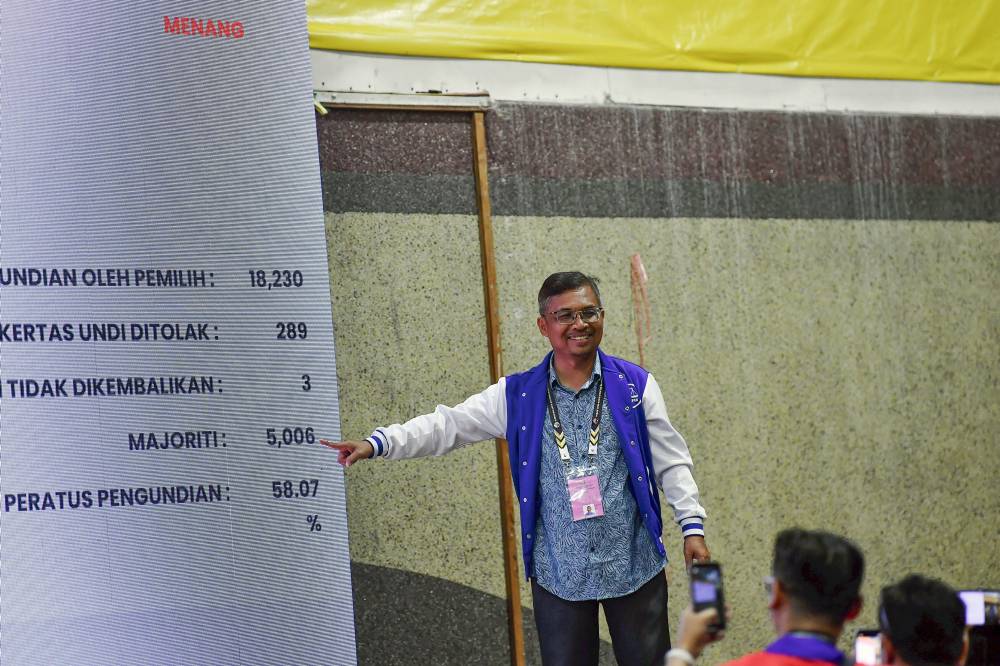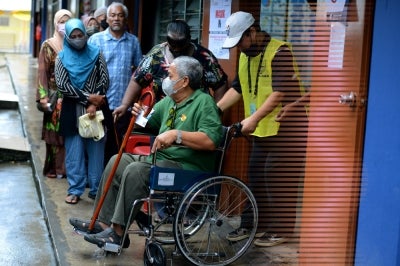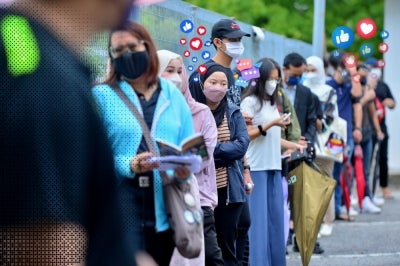What Ayer Kuning by-election tells us about political landscape
Many voters stayed away from the polls due to dissatisfaction with the unity government’s failure to address the rising cost of living and soaring prices.

SHAH ALAM – The outcome of the Ayer Kuning by-election on Saturday, which saw Barisan Nasional (BN) candidate Dr Mohamad Yusri Bakir, 54, winning with a majority of over 5,000 votes, has led to various interpretations by competing political parties, with some questioning the victory due to a drop in Umno's base votes.
Although some parties raised doubts over BN’s victory because of the drop in Umno’s base votes, in a "first-past-the-post" system, the candidate with the most votes wins even if it was just by a single vote.
Universiti Malaya political analyst Dr Mohammad Tawfik Yaakub said all parties, including the opposition, should not dispute Yusri’s victory, who garnered 11,065 votes compared to his two opponents — Abdul Muhaimin Malek from Perikatan Nasional (PN) with 6,059 votes and Bawani KS from Parti Sosialis Malaysia (PSM) with 1,106 votes.
The debate over BN’s reduced votes should be viewed in the context that BN still secured enough votes to win, even though the low voter turnout affected the actual number of votes obtained by each candidate.
"The low turnout was not solely due to a boycott but was also influenced by other factors, including the festive season, outstation voters not returning to vote and political fatigue," he said.
Meanwhile, Universiti Sains Malaysia political analyst Professor Datuk Dr Sivamurugan Pandian said the decline in PN’s votes did not necessarily signify the end of the "green wave" associated with Malay-Muslim voter support.
He said the low turnout did not reflect a widespread decline.
"The turnout dropped from 74 per cent to 58 per cent, which could have influenced the number of votes obtained by PN.
"I do not see the green wave as having faded, but rather, it is a signal for PN to scrutinise certain factors, including the possibility that their voters did not turn out or did not return to their constituencies," he said.
Sivamurugan noted that Pas' performance in Ayer Kuning showed only a slight decrease, with PN’s candidate securing about 6,059 votes compared to 6,812 previously.
"In my view, the numbers are not that far apart; however, any decline should be examined carefully and action must be taken. Therefore, it is important to study why the votes dropped and address the issues," he said.
Be cautious with issues raised
Commenting on whether Malay voters were beginning to shift their support, Sivamurugan said Malay political support was dynamic and can change based on three main factors: the candidate, party politics, and current issues.
"BN had an advantage, including the candidate factor, as well as the significant role played by Perak Menteri Besar Datuk Seri Saarani Mohamad and the swift resolution of local issues," he said.
Regarding PN’s strategy following the by-election results, Sivamurugan emphasised the need for PN to be cautious when raising issues, given that Ayer Kuning was a mixed constituency, comprising 56 per cent Malays, 22 per cent Chinese, 14 per cent Indians and eight per cent Orang Asli.
"For example, the pig farming issue that was raised might have been intended to win Malay support, but at the same time, there are about 44 per cent non-Malay voters. Thus, PN needs to be careful in bringing up issues, ensuring they do not focus solely on gaining Malay support," he said.
Meanwhile, political analyst Dr G. Manimaran said BN’s victory was influenced by the shift in support from PH voters, particularly the Chinese community and DAP supporters, to Yusri, following their cooperation in the unity government at both the federal and state levels.
Manimaran also predicted that BN’s candidate could have obtained more than 18,000 votes and won with a larger majority if the voter turnout had exceeded 75 per cent.
"However, BN’s target of securing 18,000 votes was not achieved because many supporters of the unity government took the matter lightly, assuming Yusri would win even if they did not vote, while many outstation voters did not return.
"I also noticed that many voters stayed away from the polls because they were unhappy with the unity government’s failure to tackle the rising cost of living and soaring prices," he said.
He added that the increase in votes for PSM candidate Bawani, from 586 to 1,106 votes, was due to protest votes from the Indian community dissatisfied with the leadership at both the federal and state levels.
Download Sinar Daily application.Click Here!














